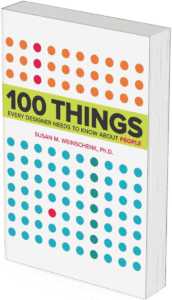Whether or not you have the right to vote in Switzerland, 26 September marks a momentous day. On the 26th, the Swiss Parliament will tally citizen’s votes to determine whether all marriages will be legally recognized in Switzerland.
This blog aims to break down the legalese and explain the backstory of the Swiss Marriage for All amendment and what you can do to be part of the change. Without a doubt, equal rights for all couples are long overdue.
Helpful Terms to Know
Swiss Civil Code
The law governing the Status of Individuals, Family Law, Inheritance Law, and Property Law in Switzerland.
Referendum
A direct vote by the electorate on a particular proposal or issue. Referendums can overturn previously passed laws.
Amendment
A formal or official change made to a law, contract, constitution, or other legal documents.
Civil marriage
A contractual agreement between two people recognized by the law, which provides certain rights to couples.
Registered Partnership
A legally recognized partnership offers some of the same rights as marriage and is reserved for same-sex couples who choose to have their status as a couple and cohabitation legally recognized.
Presumption of Parenthood
The legal determination that a person is “presumed to be” a child’s biological parent without additional supportive evidence, usually as a result of marriage.
Ratify
To sign or give formal consent to (a treaty, contract, or agreement), making it officially valid.
What’s Happened so Far
The Swiss Federal Constitution states that all people are equal under the law and that all people have the right to marry and have a family.
Despite this, Switzerland has historically lagged behind other western European countries in adopting laws that guarantee and protect the rights of same-sex couples and trans people.
For example, on the latest ILGA-Europe rating of 48 European countries, Switzerland ranks 23rd. In addition, it ranks 25th on the LGBTQ+ Travel Safety Index out of 149 countries in 2021.
A Brief Timeline
The referendum process is first incorporated into the Swiss Federal Constitution
Same-sex acts are legalized
Women have the right to vote in Switzerland (in most cantons)
Age of consent (16 years old) is the same for same-sex and heterosexual people
LGBTQ+ citizens equal are guaranteed equal treatment under the law
Same-sex partnerships are legally recognized under registered partnerships
The Same-sex marriage amendment is introduced in the Swiss Parliament
Transgender people are allowed to change their gender status without sex-affirming surgery
Homophobic discrimination is recognized as a criminal offense
The same-sex marriage act is adopted to Swiss Civil Law with the option for referendum
April
The optional referendum is for the Same-sex marriage amendment is passed
26 September
Swiss citizen’s votes will be tallied to determine whether the Marriage for All amendment will pass
Where Are We Now?
Registered Partnerships
Registered Partnerships for same-sex couples have been possible since 2007. They grant same-sex couples some of the same rights and protections married couples are afforded, including next of kin status, taxation, social security, insurance and shared possession of a dwelling.
However, under Swiss law, registered partnerships exclude the right of:
Full joint adoption of children
Access to fertility treatments
Presumption of parenthood to same-sex parents
Swiss naturalization of foreign partner (same-sex couples legally married in other countries are only recognized as registered partnerships in Switzerland).
Same-Sex Marriage Amendment
The same-sex marriage amendment was first introduced in the Swiss parliament in 2013 – the amendment intended to provide same-sex couples equal rights as their heterosexual counterparts. At the time, the bill was hailed as a huge step forward for the rights of LBGTQ+ people.
With a notoriously slow parliamentary process, it took seven years, and multiple rounds of debate before the Swiss Parliament voted in favor of marriage for all on 18 December 2020.
Other Notable Changes
Along with providing legal rights of marriage, the amendment also allows married same-sex couples to access sperm donations from domestic sperm banks. Additionally, it extends the right of parenthood (presumption of parenthood) to the person not carrying the child, meaning married same-sex couples will have equal parental rights as heterosexual couples.
Terminology in the Swiss Civil Code will also be adjusted. For example, the words bride and groom will be replaced with two people or the engaged. Additionally, the law states that same-sex couples currently in a registered partnership can convert their status to married.
The Referendum
Once an amendment to the Swiss Civil Code is passed, it’s subject to an optional referendum. This process gives Swiss citizens the right to overturn laws passed by parliament, part of the checks and balances system of direct democracy.
In Switzerland, referendums are triggered when 50’000 signatures of eligible voters are gathered, or any eight cantons object to the amendment within 100 days of the law being passed.
However, most bills and proposals decided by parliament enter into force without a referendum, and when there is a vote, the electorate follows parliament in most cases.
What’s Next?
But this precedent was not the case for the same-sex marriage amendment. The deadline for the referendum submission was 10 April 2021. And due to opposition from Switzerland’s conservative party, an optional referendum was launched. The fate of the Marriage for All act is now in the hands of the Swiss people.
The bill will pass if the majority vote in favor, but no amendments to the current law will be made if the majority votes no. Bills vetoed by the Swiss people can be revisited by parliament later; however, this can take years.
Be Part of the Change
How to Vote
If you’re eligible to vote in Switzerland, you should have received your ballot via post in an envelope labeled Stimmmaterial.
As it’s now past the time that votes can be mailed in, you’ll need to bring your ballot in-person to your local polling station. You’ll find its location in the Stimmmaterialien packet. It’s also worth checking if your canton provides letterboxes where you can place your ballot before the deadline.
If you’re voting for the first time, don’t worry! You don’t need to register to vote. Simply bring the ballot to your local polling station and cast your vote. Unfortunately, if you live abroad, it’s too late to vote this time, but you can find more information on how to vote in the future here.
Spread the Message
Whether or not you’re participating in the vote, you can spread the message. Some eligible voters may be unaware that the referendum is happening, so we encourage you to be part of the conversation. You can share this blog or other information on social media and ask others to do the same.
Outlook
With a survey stating that 82% of the Swiss population supports Ehe für Alle and a majority endorsement from the Swiss parliament, the outlook is positive. While legalizing same-sex marriage is undoubtedly a step in the right direction, there’s a lot to be done before our world is inclusive and safe for all. An inclusive world starts with us. Join us in being part of the difference. #diversity365












